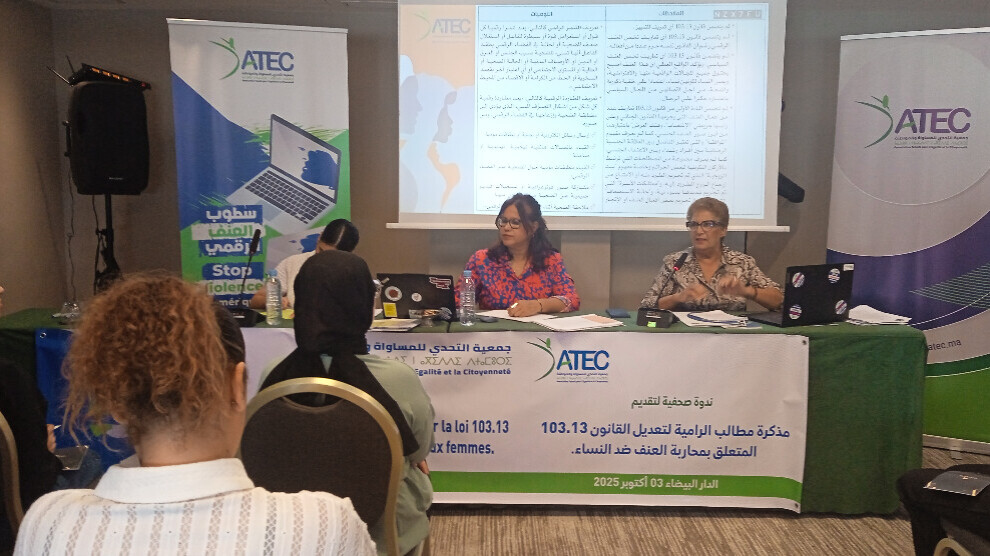Moroccan Association Calls for Review of Law Protecting Women Victims of Violence
Amid rising violence against women in Morocco, ATEC urges urgent reform of Law 103.13, calling for real protection, clearer justice procedures, safe shelters, and stronger support for survivors to end impunity and empower women.

HANNAN ARET
Morocca- Amid growing concern over rising cases of violence against women in Morocco, the Association for Equality and Citizenship (ATEC) has issued an urgent call to amend Law No. 103.13 on combating violence against women, arguing that the current legislation fails to provide survivors with real protection.
On Friday, October 3, the association held a press conference in Casablanca to present a memorandum demanding reforms to Law 103.13. Drawing on years of fieldwork with women survivors of violence across the country, the memorandum is described not merely as a legal document but as “a genuine outcry” against the systemic barriers women face in accessing justice.
Among its key recommendations, the association urged the removal of the burden of proof from women in violence cases, ensuring they can seek justice without additional obstacles. It also stressed the importance of explicitly banning reconciliation or withdrawal of complaints in such cases, viewing these measures as essential to deterring perpetrators and safeguarding victims.
The association highlighted the human dimension as well, calling for the development of women’s shelters into truly safe spaces that guarantee dignity and sustainable protection—beyond the current time-limited framework. It further advocated for stronger economic and professional support for survivors, enabling them to build independent lives outside cycles of violence.
Bouchra Abdo, the association’s director, emphasized during the press event that while the existing law was a significant step forward, it remains flawed and inadequate in ensuring genuine protection. She explained that the memorandum rests on four pillars: prevention, protection, reparation, and ending impunity.
Speaking to our agency, Abdo underlined that the aim is to make the law a functional tool for women, not merely words on paper. She called for clearer, more accessible judicial procedures, reinforced psychological and legal support for survivors, and tougher penalties for perpetrators to prevent impunity.
The association issued a direct appeal to the Ministry of Justice, the Ministry of Solidarity and Family, and the Ministry of Interior to urgently open discussions on reforming the law so that it reflects Morocco’s commitment to combating gender-based violence.
As Abdo put it, this initiative is “not just a legal campaign but a living example of civil society engaging with state institutions to advance justice and equality”—with the ultimate goal of making Morocco a regional model in protecting women from violence.
